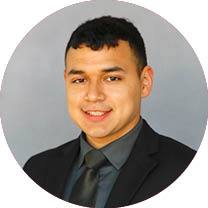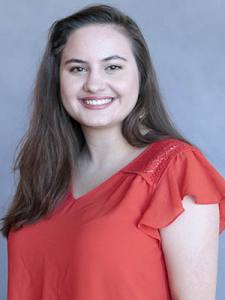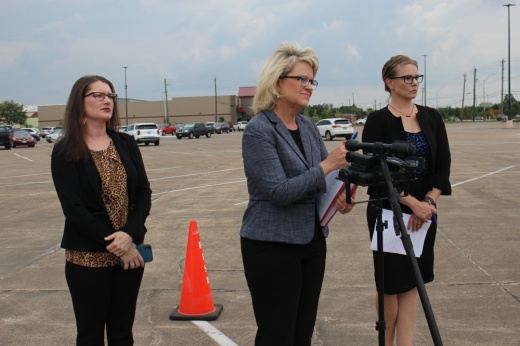“First and foremost, there is not a single student unaffected by COVID,” said Colleen Dippel, founder and CEO of the statewide nonprofit Families Empowered. “The way special needs students were affected differently is that there was more isolation.”
Students with disabilities had a tougher time getting the additional support they needed due to social distancing, district officials said.
In Pearland ISD, the district had to be flexible for its students with disabilities—especially those whose parents were not comfortable with their child going to school in person.
“We had to find creative ways that were still safe for parents who had concerns,” said Lisa Nixon, executive director of special programs at PISD. “We were able to do that and meet their needs.”
However, some parents of special needs students said the district is not doing enough.
Two PISD parents and special education advocate Karen Cunningham gathered Aug. 4 in front of the Pearland ISD administration building for a news conference to address what they called “egregious behaviors” on the part of the school district relating to special education for students.
“This district is not the district you want to be in if your kids need extra help with academics, behavior or language,” said Kelly Rhame, one of the parents represented by Cunningham. “This district will spend tens of thousands of dollars defending their program rather than help your child read.”
According to Cunningham, there are at least five due process hearings pending at PISD in the next several months. A due process hearing before a judge is one option parents can take if they disagree with a school district’s assessment of their child’s special education needs, Cunningham said.
Cunningham and her clients said the district is guilty of several shortcomings, which include not providing teachers and staff with the proper training to deal with special needs students; lying to parents about processes, faculty and special needs services available; and denying services to students who potentially need special education services.
In a statement to Community Impact Newspaper, the district said it is aware of the news conference but could not go into detail due to pending hearings before the Texas Education Agency.
“We are confident the facts will be revealed during the legal proceedings,” the district said in the statement. “Despite what may have been implied during the press conference, Pearland ISD and the special programs staff have been and remain committed to meeting the needs of students receiving special education services.”
Other challenges
Meanwhile, the lack of a routine in the spring of the 2019-20 school year was a challenge for students, particularly for those receiving special education services, said Dahria Driskell, executive director of special education at Friendswood ISD. “When students couldn’t have a routine they were familiar with, it was pretty challenging,” Driskell said. “When they returned to school, it was amazing. It was like they hadn’t left.”
FISD had the majority of its students opt for in-person school over the 2020-21 school year, Driskell said, but fewer than five of its students with disabilities—of which there are over 100—opted to go to school in person this past year.
Last year, Texas launched the Supplemental Special Education Services program. The SSES program uses grants to help parents pay for therapists, technology needed at home and other resources necessary to help their children continue learning outside of the classroom.
One of the challenges students receiving special education face is their options for learning outside the classroom are severely limited, Dippel said. While most students may be a part of extracurricular activities, these are often prohibitive to students with disabilities.“SSES was a smart, innovative way to use federal dollars to provide much-needed support to our most vulnerable kids,” Dippel said.
The nonprofit had thousands of students apply for the SSES program. The resources available are specific, so many families did not qualify, which highlighted the need for more resources, Dippel said.“There is a desire on the part of the families to support learning that has been lost,” Dippel said.
Besides combatting learning loss, addressing the social and emotional needs of students with disabilities should be the highest priority for schools in this upcoming school year, she said.
Alvin ISD monitored closely for learning loss on an individual basis last year and will continue to do so this upcoming year, said Sarah Chauvin, director of special needs at AISD. The district also tailored resources such as tutoring and therapy to meet the needs of individual students, including social skills and crisis support.
“It couldn’t be a one-size-fits-all decision just because each of our kids is so different,” Chauvin said. “I am excited about some of the focus and support for the social-emotional piece.”
When it comes to learning loss, PISD does not expect it to be worse for students with disabilities when compared to the rest of the student body, Nixon said. However, one of the main things PISD will focus on when all students return in the fall will be gauging where they stand academically.
One thing in PISD’s favor is a majority of State of Texas Assessments of Academic Readiness-eligible students took the exam in 2020-21, so the district has those results as data it can use to see what areas need to be focused on in the upcoming school year.
“We are going to be very purposeful with intervention. We don’t want to just assume they lost a full year,” Nixon said. “We have some evidence from our STAAR testing that there were skills that students mastered successfully, and so we want to make sure we look at where the gaps are to see where that extra support is going to be needed.”






